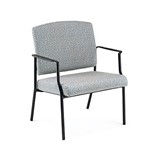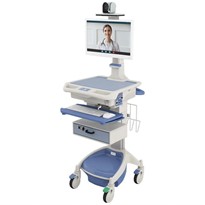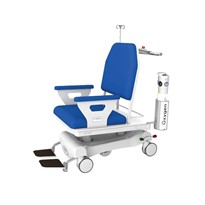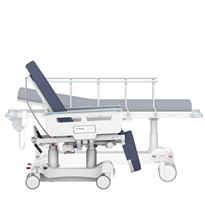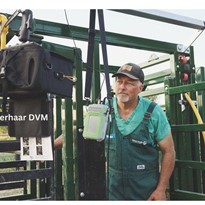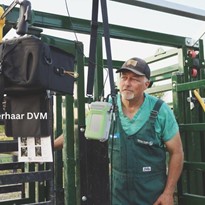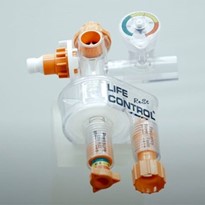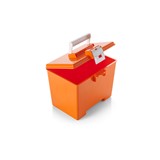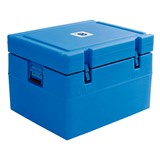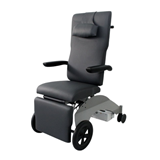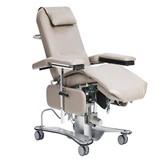THE STARTING POINT
RCN MEDIZIN- UND REHATECHNIK GMBH develops a wide range of products for everyday care. These include shower stools, wheelchairs and walkers. The company also offers chairs, infusion stands, couches and shelves that are non-magnetic. These are especially recommended for use in the field of magnetic resonance imaging or, in short, MRI. The company has been producing nursing aids for more than 30 years and employs around 100 people in factories in the USA and Germany.
SPECIAL REQUIREMENTS
An MRI device generates high-resolution images and does not involve exposure to radiation. During tomography, electromagnetic fields, whose strength is measured in Tesla, are generated. MRI devices with up to three Tesla are standard equipment in hospitals.
For greater accuracy of detail, doctors are increasingly using devices with higher Tesla values, which also generate stronger magnetic fields. This means that magnetic objects are prohibited in the vicinity of MRI machines. Due to the enormous forces of attraction involved, they pose a threat to staff and patents. RCN therefore develops medical furniture that uncompromisingly meets the strict requirements in this field. This furniture is made of standardized white plastic tubing and has distinctive characteristics.
RCN manufactures products made of synthetic material and brass for MRIs up to three Tesla. Castors containing this metal are also used in this Tesla range. Brass is used for ball bearings and mounting fixtures. However, for examinations from seven Tesla upwards, the approval requirements for furniture and equipment are a real challenge: even non-magnetic brass is not allowed. In some countries, they have special security gates before entry to MRI zones, which sound the alarm when they detect residual magnetism.
RCN therefore also manufactures products that do not contain any metal components. In order for these infusion stands, couches and chairs to guarantee safe mobility, RCN requires castors that meet the high specifications for this use.
OUR SMART MOBILITY SOLUTION
For particularly powerful MRIs from seven Tesla upwards, we have developed a special variant of our Levina scan for RCN with total locking. The remarkable thing about this solution: We have managed to dispense with brass even down to the mounting fixtures and particularly for the ball bearings. The castor is made up entirely of components that are 100 percent synthetic material.
The Levina scan therefore exhibits no residual magnetism and guarantees the highest level of safety in MRI imaging. Compared to solutions containing brass, it has a higher load-bearing capacity and can carry a weight of up to 80 kilograms. To offer even more safety and stability, we have also carried out individual adaptations. The castor stems are adapted to the size of RCN’s standard plastic tubes. In addition, we have secured the Levina scan with a plastic screw on the frame so that the stem cannot twist. The castor is available in 100 and 125 millimetre sizes, in a simple swivel castor or as a swivel castor with total lock.
INTERNATIONAL ADVANTAGES AND VARIOUS APPLICATIONS
With the Levina scan, RCN has the perfect castor for MRI use. Although made entirely of synthetic material, it has an outstanding load-bearing capacity and stands for maximum safety. Due to its properties, it is also suitable for MRI rooms in which metal detector locks are used. The solution also offers valuable advantages for RCN’s international business. Each country has its own regulations governing the use of products in an MRI environment. RCN can use the castor not only in the MRI area, but also in research facilities or security gates.



